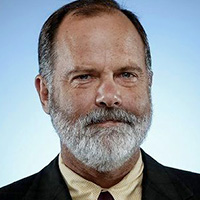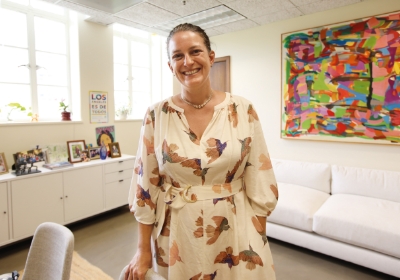LOS ANGELES IS THE BIRTHPLACE OF THE FREEWAY AND, WITH IT, many unintended consequences. When the 110 freeway first connected Pasadena to Downtown, it was designed with sweeping curves, meant to give joy to those who used it. That idea, of freeways as a source of beauty and relaxation, has not worn well.
Freeways allowed L.A. to grow and gave commuters the chance to live in suburban enclaves while working in concentrated office areas. They opened trade routes, connecting the ports to train hubs in the Inland Empire. They were vital to commerce and mobility.
They also destroyed neighborhoods, exacerbated racial tensions and poured out greenhouse gases that are plummeting the planet toward an existential crisis.
And so, Los Angeles today is confronted with myriad transportation challenges. It takes too long to get anywhere, and the city’s favorite method of doing so — the private car with a single driver and no passengers — is wasteful and polluting. Metro runs trains and buses, but concern about unruly passengers sometimes keeps other riders at bay. Urban sprawl means
that many commuters spend an hour or more every day getting to and from work, time that could otherwise be spent with families, or reading, or hiking — or, frankly, doing anything other than being stuck in traffic.
Those are at the heart of our transportation woes, and they are familiar to anyone who lives here. If there is good news, it is that some of this region’s better minds are trying to ease those very problems. Their work, presented in this issue of Blueprint, suggests that it does not have to be this way.
Tamika Butler rides a bike — and advocates for solutions that advance not just improved traffic flow, but also equity. Adam Millard-Ball, author of a comprehensive report on freeways and their effects, envisions alternatives to the corridors that have defined modern Los Angeles. Jiaqi Ma, an associate professor at the UCLA Samueli School of Engineering, sees promise in autonomous vehicles. Evelyn Blumenberg, a UCLA professor of urban planning, imagines what parents could do if they spent less time driving and more with their children.
Those are reminders that transportation planning is meaningful on several levels. As a matter of innovation, it produces such novelties as cars that drive themselves. As a matter of policy, it requires lawmakers and planners to consider how those cars will get around, and how trains, buses and bikes contribute to the overall task of keeping a place moving. And as a matter of domestic and intimate life, it affects such poignant concerns as how children grow up.
Improvements can be made. Look no farther than Paris, where Blueprint’s intrepid contributor, Michael Finnegan, reports on what happens if a place looks broadly at a transportation challenge and invests to address it. There, the region is spending $40 billion on a revamped transit system that will allow commuters to travel from suburb to suburb without passing through the center of the city. The Grand Paris Express, as it is known, may have lessons for Los Angeles.
Los Angeles may never be easy to navigate. It is too big, too spread out, to offer the convenience of Manhattan. But trains and autonomous vehicles and even bikes may take the strain off freeways and offer a more sustainable future. Maybe one day it will even be possible to enjoy the ride again from Pasadena to Downtown.
























